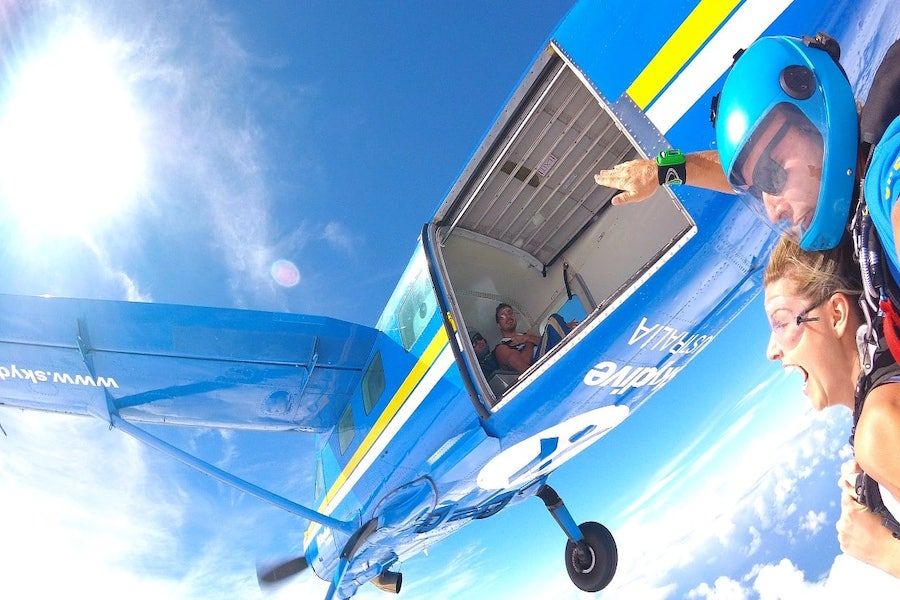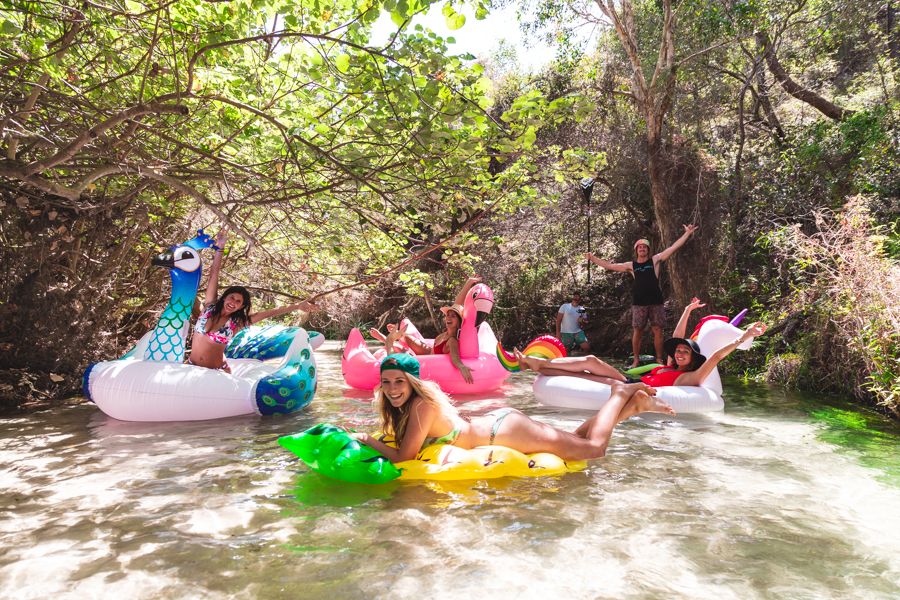Is The Pay Low For Backpackers In Australia?

January 7th, 2025
7 minute read

Legally, the pay isn’t low for working-holiday makers in Australia because the legal minimum wage is relatively high compared to many countries. As of July 2024, the National Minimum Wage is $24.10 per hour or $915.90 per 38-hour full-time week (AUD). Casual workers are also required to be paid an additional 25% casual loading rate, which is higher due to the lack of superannuation.
However, reports have shown that many backpackers in rural and agricultural roles, like fruit pickers and cattle station workers, have experienced exploitation and underpayment while completing their 88 days of rural work. Other industries that are known to underpay backpackers include hospitality, cleaning and tourism. Make sure you know your way around wage rights and resources in Australia with this handy guide before getting to work on your gap year!
Enjoy Australia outside your working hours with these fun experiences!
Are backpackers entitled to the minimum wage in Australia?
YES, backpackers are entitled to the minimum award wage while travelling and working in Australia. In fact, your employer is required by law to pay you your minimum award wage during your working holiday in Australia, no matter where you come from.

So, why are backpackers underpaid in Australia?
The controversial 88-hour regional work requirement undeniably leaves working-holiday makers vulnerable to exploitation. In short, to be eligible for a second WHV, backpackers must complete 88 days of eligible rural, regional or horticultural work. As such, employers in jobs that qualify for regional work are the most likely employers to try and underpay their foreign workers. While not every employer will try and do you dirty and underpay you, it does happen a lot so being aware and diligent is super important!
In reality, the Australian horticulture and hospitality industries rely heavily on overseas workers, as there are labour shortages in rural areas (and during summer peaks for hospitality). Backpackers really do a big part in upholding Australia’s food economy and supply! As such, there are plenty of job opportunities and you have no obligation to remain working for an employer that is underpaying you. There are so many jobs, farms and stations out there, so an underpaying boss is just a bad fish in a huge sea.
Here are a few steps you can take to make sure you are receiving minimum wage during your working holiday.

1. Don’t be afraid to talk money
When organising a job on your WHV, make sure you have a defined contract, employment type, contract length, and of course, the minimum wage. It is so important to agree to a wage prior to commencing work; in a written correspondence like email is best. Don’t be afraid to ask for more information, make changes to your contract and demand the minimum legal wage from your employer. And, if they refuse to offer the minimum award wage, keep looking and report it to Fair Work.

2. Know your wage rights
If you’re currently working, and your employer decreases your pay to under the minimum wage or begins to ask for cash back after they’ve paid you, it’s illegal. You can request minimum wage in this case. Make sure to keep up-to-date with your award wage entitlements on the Australian Government website - they have heaps of handy resources.

3. Consider your lodgings
Some employers offer accommodation and/or food as a part of the deal, which sometimes can mean a reduced wage for room and board. This is super common in rural work where there is no public transport or accommodation in the area. While it may seem like a good deal, remember that your employer is still obligated to pay you a minimum wage no matter what. So, a “wage deduction” or lower wage paid under the table in return for rent is not lawful. If your employer is providing you accommodation, you must agree in writing, and pay the agreed-upon rent separately from your wage.
Also, don’t pay any bond (security deposit) money to your employer directly either: in Australia, all bond payments go through the Rental Tenancies Authority (RTA).

4. Be wary of pay-by-piece rates
A “piece rate” refers to a rate of pay by unit, rather than hour and is a pretty common setup for backpackers doing farmwork. Often piece rates include kilograms or bins of fruit picked. For example, if you get paid $20 per bin of oranges, and you fill 5 bins of oranges, you make $100.
Know your rights with piece rates:
-
As of 2022, piece rates have a minimum wage guarantee (so you at least get paid a decent wage per hour if you earn under the minimum on your piece rate). For casual workers, the wage guarantee is $29.33 per hour and for full-timers, it’s $23.46 (as of January 2025). Keep note of your hours even if you are on a piece rate.
-
You’re required to be paid for any work you do, so if work completed doesn’t translate to a piece rate, you are entitled to minimum wage. For example, you can get paid for filling 5 bins of oranges or packing 5 bags of oranges at a piece rate, but any jobs like cleaning, admin or gardening must be paid at an hourly rate. You can be paid at both a piece rate and an hourly rate.
-
A piece rate can only be based on individual effort. For example, if a group of workers are all filling the same bin of oranges, the workers are not eligible for a piece rate from that work.
-
In horticulture, variables of the harvest really can impact your piece rate. For example, if you’re picking oranges from orchard A that are half the size of oranges in orchard B, but the workers are receiving the same piece rate on both farms, workers in orchard A have to do nearly twice the work to fill their bins.

5. Search for your farmwork early!
To ensure you don't feel rushed to find farm work causing you to settle for a low-paying, potentially dodgy job, look early! During the first year of your working holiday, start browsing the web. Backpacker Jobs Now is a great place to start.

6. Understand your tax obligations
Working holidaymakers backpacking in Australia have separate tax obligations, so understand what you'll be paying to the tax man and take that into account when agreeing on minimum wage. Check out our backpacker guide to paying tax on a WHV in Australia.
Highest-paying backpacker jobs in Australia
-
Trade & Construction - builder, electrician, plumber, roofer, carpenter
-
Healthcare - nurse, aged-care worker, doctor, midwife
-
Admin / Marketing - salesperson, digital administrator, online marketer, customer service
-
Accounting & Finances - accountant, bank clerk, financial advisor
-
Hospitality - waiter, bartender, chef, barista
-
Tourism - hostel clerks, hostel cleaners, travel agencies, deckhands, dive instructors
-
Farmwork - fruit picker, cattle station worker, packer, farmhand

While there are employers that will try and get cheaper labour from backpackers completing their 88 days, you can also earn a lot if you work hard doing horticultural work in Australia. Just make sure you take the time to find a decent farm that pays its workers well! It's a good idea to start your farm work early in your first-year working holiday so you aren't scrambling to find a job and you can choose a great employer. The piece rate means that if you’re physically able, can endure the Aussie weather and become efficient at picking, you can make some serious bank!
TLDR
The most important thing to remember when working in Australia is that everybody is entitled to a reasonable minimum wage. Remember to familiarise yourself with your particular award wage before entering into contracts with any future employers. With that grain of salt in mind, you can enjoy the gorgeous landscape, sunshine and unique opportunities that await you on your next Aussie gap year!

For more information on paying tax, setting up a bank account, receiving super and getting your second or third WHV, check out our guide to Australian Working Holidays!
Or, plan your East Coast itinerary with our awesome locally-designed tours that will show you the very best of our sunburnt country!
All information, advice or pricing provided by East Coast Tours and our affiliates, or through any of our team, is subject to change. East Coast Tours articles and products are provided online for general information purposes only and are intended as guides. Any advice interpreted from information on the website (including but not limited to financial, immigration, employment and tax information) is not specialist advice and does not constitute legal, tax or other professional instruction. East Coast Tours does not guarantee that any information provided is up-to-date or accurate. Please obtain professional or governmental advice before actioning any advice, including but not limited to tax, immigration, employment, travel restrictions and finances.



























